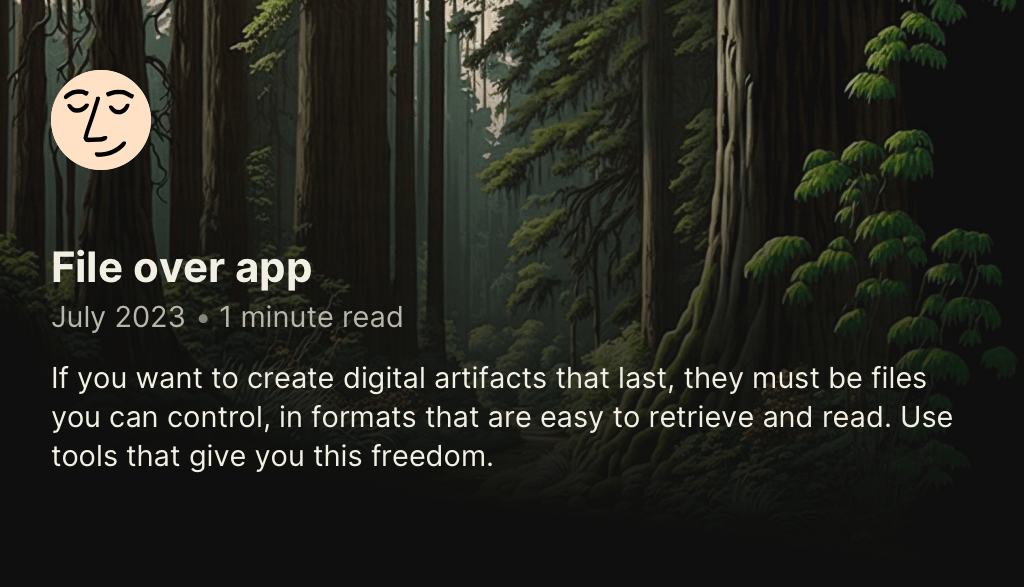- cross-posted to:
- programming@programming.dev
- cross-posted to:
- programming@programming.dev
I personally wouldn’t recommend obsidian (mentioned at the end of the article), but still, I think the article is worth reading.
It’s a good philosophy, to be sure. It doesn’t take many migrations to realize that keeping your files in open, easy to read formats is preferable.
I also use obsidian, but I do sometimes worry that the linking and metadata will be difficult to work with in the future when the software goes away. It’s all there in the files, but my vault is slowly linking together in interesting ways that rely on obsidian functionality.
Try logseq, it’s a foss alternative to obsidian
And they must be local rather than remote (cloud).
Also, always prioritise a common format served through filters (for example having all your data in postgres and minio, and serve that on demand as ICS, XML, etc) so that you don’t need to duplicate or lose data due to formats.
It’s a great point to be making, though it seems to me part of the answer is to keep a copy of the software with the data files.
I keep a repository of software, relying on my brain to know which apps go with what archived data.
Think I need to revisit how I track things.
Software isn’t reliable because older software typically doesn’t run on newer machines. This is mostly due to changes in libraries that software relies on, but sometimes can also be do changes in the actual architecture of the CPU.
The philosophy of “you need to own your files” is great.
The extension to “you should be able to open it with a computer from the 60s” is insane. You don’t need to give up efficiency and make everything plaintext. Just document shit.
Take it further. Convert all of your data into forward or simple formats. Don’t encode your images as gif, keep them raw. Store word docs as markdown. Don’t use proprietary formats (duh).
Linux will be around for a long time, which is convenient. Everything is a file, that counts, right?
Also be thankful for VMs and the push towards distroless containers.
Don’t encode your images as gif, keep them raw.
This is fucking insane. There are plenty of open standards for image files.
It was an example. Lossless formats exist.
Interesting, I must admit, I never thought of digital data like this. I suppose a lot of history from our current era is either online or in a digital format. That in turn makes data important to preserve, although that part was obvious.
This reminds me of Blu-ray and streaming. Movie and series studios seem to prefer streaming over Blu-ray. If I’ll stream a movie, I won’t own it. On the other hand, if I’ll buy a Blu-ray disc, I’ll own it.
Lately I bought a Buffalo 1-terabyte external ssd. It’ll be my backup ssd. The formats of my files are common so I don’t have an issue opening those.
Why can’t I highlight any text on that page?
I agree and resonate with this so much! I think everyone should have everything (or almost everything) in their vault as markdown files.





